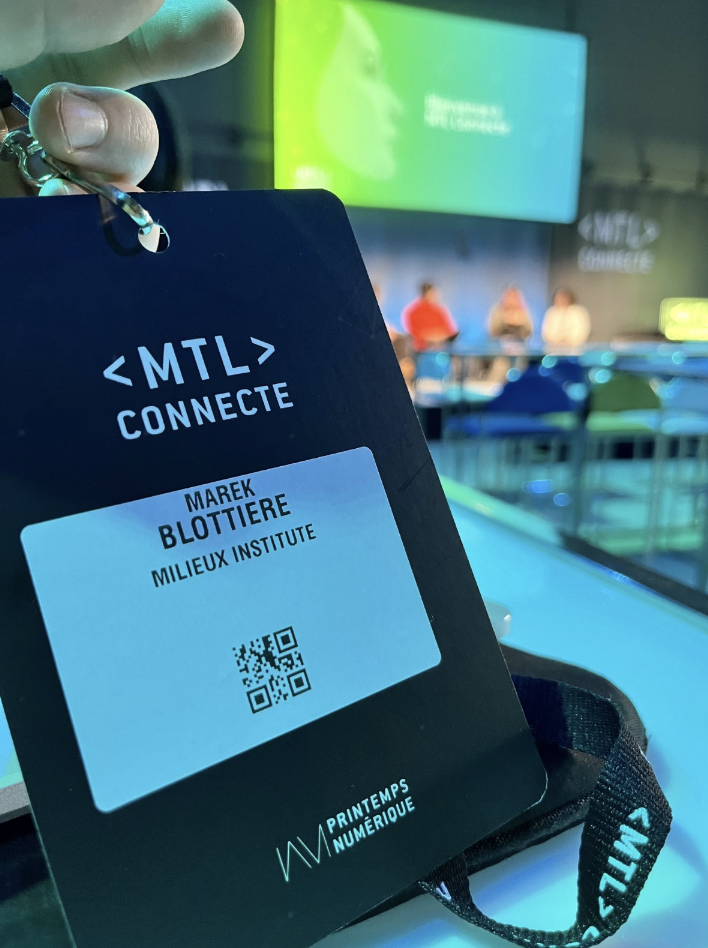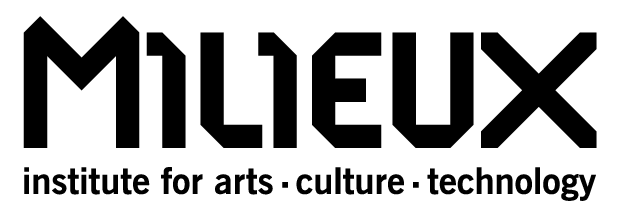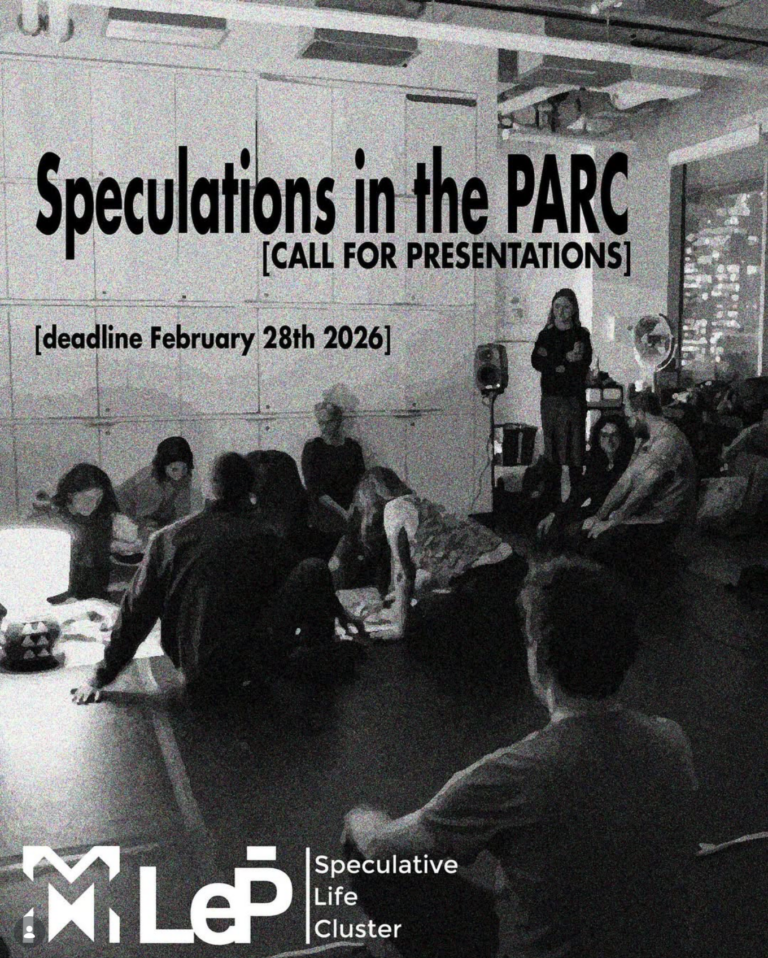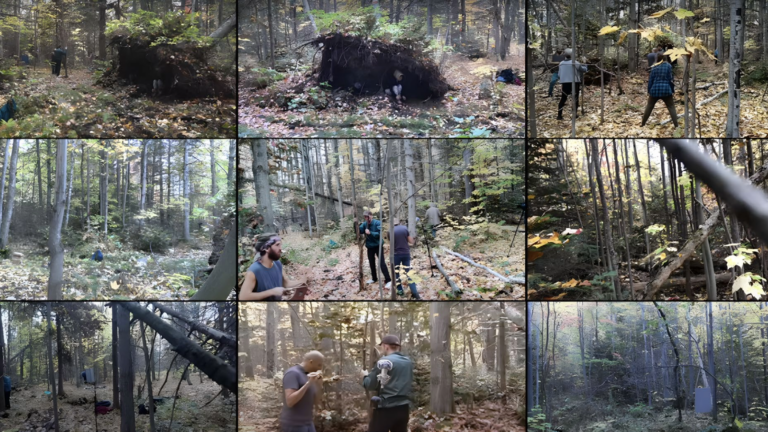By Marek Blottiere, MA candidate at the Institut national de la recherche scientifique (INRS), interested in the Canadian media ecosystem, and how it shapes the cultural politics of AI.
“The important thing is to tell the right story, to the right people, at the right time” (speech at the conference). A few weeks ago, I had the opportunity to participate in the Montreal Connect:Digital Week conferences. Here are some of my reflections and comments on the technological future and the “ecosystems of hope” it entails, approximated from my research experience in the field of Science and Technology Studies (STS). Since part of this field of research focuses on the discourses surrounding technological development, I have paid close attention to the elements of language that promise social revolutions through technological innovations.
Despite some very (too?) optimistic presentations about the new quantum hype or deepfake solutions to address communication barriers, the technological future was far from being portrayed as THE solution to the many issues facing our societies. Trust issues, climate issues, issues of representativeness, and social and geographical disparities, were all addressed in the conferences. If technology is not the only key to these problems, it forms avenues of solutions in which different public and private actors intervene, shedding light on certain horizons. The following paragraphs provide an overview of these possible futures and their challenges.
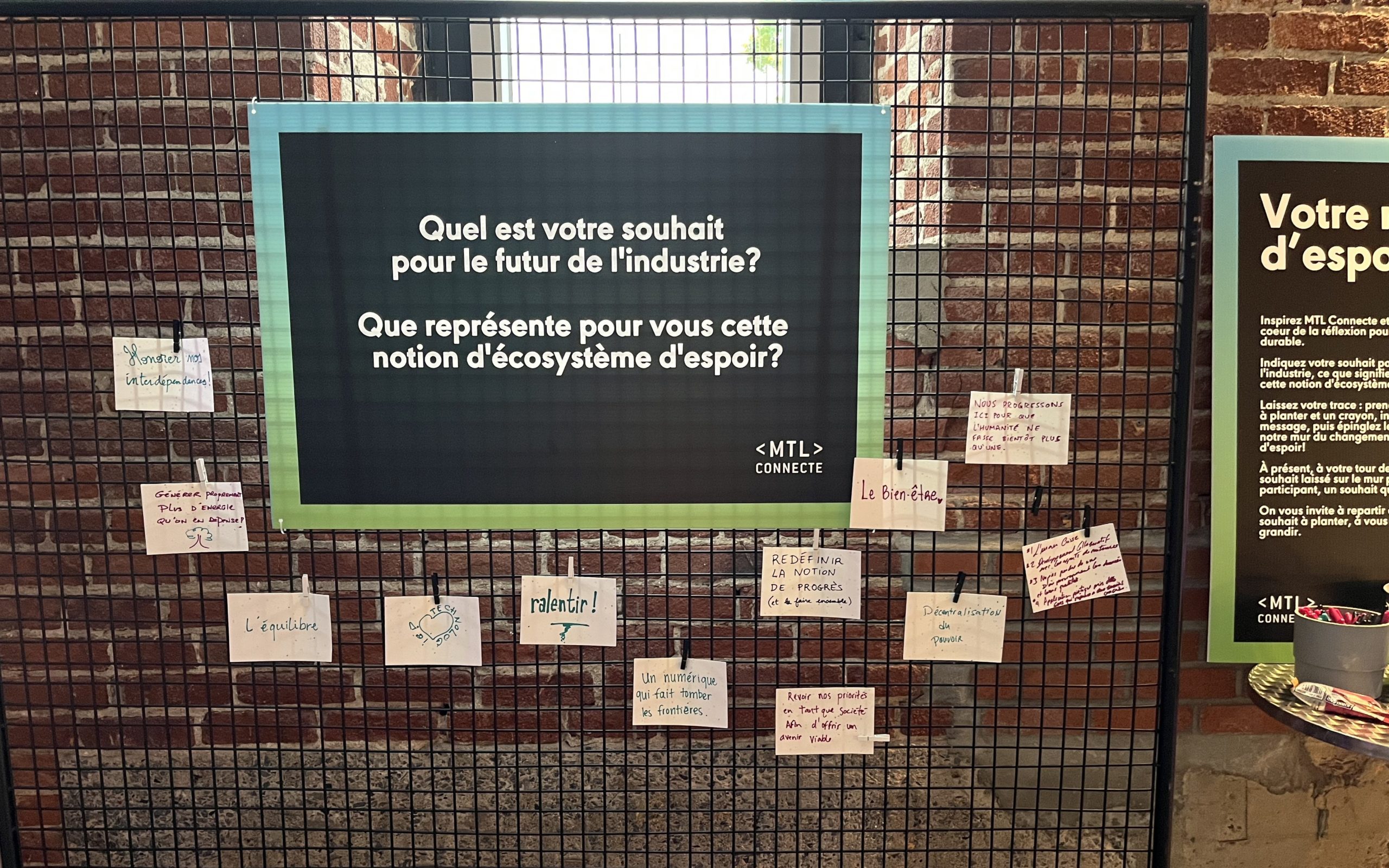
Dr. Hugues Bersino, professor of computer science, questioned the algocracy model – the idea of a society governed by algorithms – as a form of power based solely on the optimal management, thanks to algorithms, of commercial, social and political information – and argued for a return to more democratic forms of regulation. In parallel, a panel moderated by Mathieu Barreau (CRIM) brought together Cynthia Chassigneux, lawyer, Abde Essaidi, VP in a data processing company, Rémi Blanchette from Thales Canada, and Davender Gupta from the Canadian government, to reflect on the need for regulatory mechanisms for AI. One of them mentioned the importance of a cross-disciplinary perspective to better account for the issues of transparency and corporate responsibility. Another underscored the critical need of government regulation to protect personal data. A last one declared that “too much hype kills the hype” and denounced the often-exaggerated beliefs of artificial intelligence. Moreover, in a corridor discussion, a manager confessed me that he dropped the term AI for this very reason: “AI as a brand is not as powerful as before”
Curtain up on AI, welcome to Quantum 2.0? Shohini Ghose, professor and director of the Laurier Centre for Women in Science, put it this way. While admitting that it is a bit of science fiction, “it’s still real” she told the audience. Beyond the promotional speech that seems to captivate the room, the physicist seized the opportunity to remind the audience that 1) we are still far from a generalized application due to obvious environmental issues and 2) it is a man’s environment, and we need more inclusiveness and diversity in technological development. The speeches were inspiring and featured experienced speakers such as Philippe Longchamps, finalist for the Global Teacher Prize 2021. He warned us about cognitive biases and advocated for a better education of critical thinking.
Without being presented as the solution, the conferences were, however, made of very frank business talk that feeds unnecessary hype and anxiety. Of the conferences presented above, all have in common that they presented technology first as a risk and then as an opportunity. We heard that “it’s not the technology that’s bad, but the way it’s used”, that even if mistakes have real implications, notably in data leaks, it’s only a matter of time before they are resolved. These risks turned into opportunities are a boon for Larry Markowitz and Vincent Gagnon from National. For if risks sometimes lead to crises (e.g. cyber-attacks, compromising situations on social media, media controversies, labor disputes), when they are well “managed they are opportunities to build a reputation” – in the sense of giving a good image to the public.
In the same conference, we therefore found critical, promotional, and marketing speeches, pointing out the inherent contradictions of the capitalist system in which technological development is inserted. For if, on the one hand, some present the importance of good regulation for the protection of citizens, on the other hand, some actors defend that regulation can come from the companies themselves, allowing to avoid too constraining, “tightening of regulations”. In this regard, ethics were often presented as a moral commitment by companies, voluntarily undertaken to act well in the eyes of the public. One grey area of this conference was the need to be cautious about the kind of strategic self-regulation that ethic regularly involves. For while no one is against ethics, it is often used as language by private companies to “control” regulation.
The diversity of the program and the choice of conferences were aimed at an ecosystem that depends on technological development to survive. However, this diversity is also an important reminder of the need for broader democratic participation in this movement and the need to integrate plural and multidisciplinary knowledge. It is a reminder of the complexity at work in technological development today, not between one extreme and another, but rather within multiple adjustments that are as much part of the solution as the problem. Like the exhibition “Eco(systems) of hope” that took place at Anteism Books or the discussions between artists Navid Navab, Dayna Daner or Leila Zelli, other meanings given to technological development are possible and necessary. Meanings that would not necessarily be commercial, private and extractive, but rather collective, relational, open.
“What’s next?” asks the applied AI institute, a partner of Montreal Connect from Concordia, which rightly presents that “artificial intelligence needs a human touch”. The story given so far about AI needs to change. For that, it needs human and social science touch.
